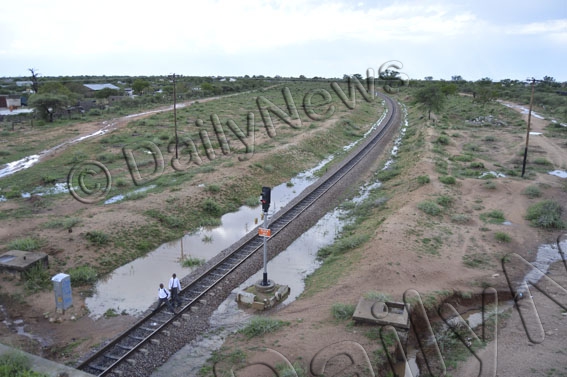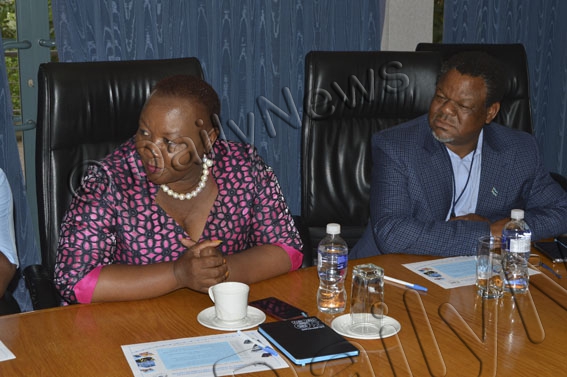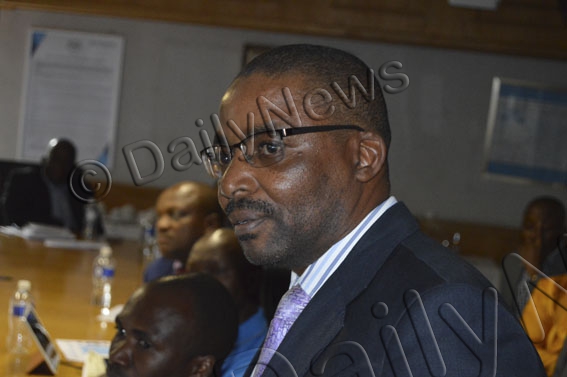Coal Business opportunity for Botswana Railways
20 Feb 2019
After celebrating its 30th anniversary in 2018, Botswana Railways (BR) has since engaged in a number of projects aimed at expanding capacity and improving its effectiveness.
Established in 1989 as BR after government bought out the Botswana based sections of the National Railways of Zimbabwe, the company has been at the forefront in offering rail line transport services to passengers, local and cross border traders.
However, celebrating 30 years has prompted the company to consider growth by expanding its fleet and rail network. The existing rail network, cargo and locomotives are showing signs of fatigue due to aging and as such require constant maintenance.
The company is also reliant on a single rail line traversing through the country from South Africa on the lower southern tip connecting to other SADC countries up north. However, the unfortunate part is that the single route limits BR’s capacity in extending its services to other parts of the continent which will ultimately link to overseas markets.
Despite the shortcomings of relying on a single railway line, BR services have been critical to the diversification and economic growth of the landlocked country. The solo railway line caters for both passenger and consignment trains.
Besides the major single route that runs through the country and proving to be the shortest link between southern and northern Africa, BR has interlinking routes within the country connecting major industrial areas such as Botswana Ash (soda ash mine) at Sua Pan, the Selebi Phikwe copper and nickel mine, Morupule coal mine and Tshele Oil reserve at Rasesa.
Despite being in existence for over 30 years, Botswana Railways has experienced little growth over the years in expanding the rail network and although battered by age, single mainline rail track still sustains the company.
However, competition and the quest of staying relevant has compelled BR to consider expanding its rail network in the Southern African Development Community (SADC) region and subsequently increasing its fleet (coaches and wagons).
Resurrection signs started showing in 2016 when the company reintroduced the passenger train which was out of action since 2009.
Recently during a courtesy call by the Minister of Transport and Communications, Ms Dorcas Makgato at its headquarters in Mahalapye, BR presented its turnaround strategy which will see the company engaging in a robust development plan. The proposition will result in establishing alternative cross border trade routes and expanding the local rail line network. Funds permitting, the projected multibillion Pula projects will see BR catapulting into a force to reckon with in terms of transportation of passengers and goods. The earmarked growth will turn around the company’s fortunes and contribute immensely to the trade agenda of the SADC region and the African dream of regional integration. More railway lines will also contribute to improving the rail network in Africa which is currently disjointed.
Despite the long proposed Trans Kalahari Railway line which is hailed as an appropriate tool to the development agenda and African renaissance, BR has proposed another trade route linking Botswana with South Africa. While the Trans Kalahari link will run from Mmamabula in Botswana to Walvis Bay in Namibia, the proposed additional and alternative trade route will link Botswana and South Africa and will run from Mmamabula in Botswana to Lephalale in South Africa.
Botswana Railways chief executive officer (CEO), Mr Leonard Makwinja has revealed the proposed Mmamabula – Lephalale rail link as a priority project for the company. The proposed 56 km railway line is projected to cost over P1.3 billion.
He said the wished-for rail route would be an alternative cross border trade route to South Africa. “With the ongoing developments of coal mining in the country, the project is becoming more critical, said Mr Makwinja.” He said the railway line would connect the two coal mines of Mmamabula and the other one at Medie in the Kweneng District.
Mr Makwinja said relying on a single trade route had proved to be a headache for BR.
“Whenever there are maintenance works along the route we fail to do business since we do not have an alternative route,” he said.
“The Mmamabula – Lephalale route will not only serve the coal mines but will definitely be an alternative trade route for BR,” stated Mr Makwinja. The new route will create a robust trade corridor into Southern Africa and ease congestion currently experienced by road transportation, he added.
The route is hailed as a major breakthrough not only in expanding the country’s rail network, but also because it will improving trade links that will boost BR business.
“During construction, the project will directly boost the local economy by creating more than by 2 000 employment opportunities,” he said.
Mr Makwinja said BR would need 60 locomotives and 2 000 wagons to move the coal to Lephalale.
He said the current rail infrastructure was not adequate for the booming developments in the coal mining industry.
Giving an overview of the Mmamabula - Lephalale project, Botswana Railways, Business Development director, Mr Stephen Makuke says at least two thirds of Africa’s coal resource (over 200 billion tonnes) were found in Botswana. Mr Makuke said the proposed rail route would link the coal deposits with South Africa’s heavy haul lines. “The project will also include building bridges across Mahalapye and Limpopo rivers,” sated Mr Makuke.
Other benefits, Mr Makuke said the route was a gateway to the South African ports for the coal market. Coupled with the proposed Mosetse – Kazungula railway line, Mr Makuke said the Mmamabula – Lephalale rail line would be the shortest route for the North South Corridor (NSC).
He said the project was expected to create up to 3 900 employment opportunities by the fourth year.
In terms of revenue generation, Mr Makuke said, “it is estimated that the project will generate P2.28 billion for BR by the fourth year.”
He said the project was definitely an alternative route into South Africa and an opportunity for business growth on the side of Botswana Railways.
“The international market is also within sight and equally targeted by BR. A study conducted by Noble Energy Research in 2016 has revealed that the demand for coal overseas is projected to increase over the years at countries such as Indonesia, Australia, Russia, Colombia, South Africa and United States,” Mr Makuke stated.
Reflecting on the Mosetse – Kazungula rail link, Mr Makuke said the anticipated trade route was projected to cost over P7 billion and would connect the country with bordering Zambia and other African countries beyond SADC through the Kazungula bridge.
The rail line is part of the North South Corridor.
The Mosetse – Kazungula rail line, Mr Makuke said the line was a gate-way to North African markets and as such would promote inter regional trade.
The route connects North Africa region to maritime ports of South Africa and will reduce haulage of traffic on the roads. Rail transport will be used as an alternative mode of transport.
Given that the country’s tourism destinations are concentrated in the north, Mr Makuke said the development would provide rail transport for tourists in the form of tourist trains.
The arable farmers of Pandamatenga he opined would also get a lift as they were expected to benefit from the development.
“The rail service will be an alternative mode for transporting agricultural produce from Pandamatenga,” stated Mr Makuke.
The company is equally focused on servicing the existing rail way lines. BR CEO informed Minister Makgato that the mainline rail track covers 640km. The branching links to Sua Pan, Selibe Phikwe, Morupule and Tshele covers an additional 261km.
The locomotives are also reported to be aging and therefore incapacitating the company.
Mr Makuke said of the 45 locomotives, 34 were between 28 and 36 years.
The company has further revealed that maintenance of its fleet is hampered by shortage of space at the company’s workshop and therefore outsourcing most of the maintenance works, an exercise which has proved to be both costly and time consuming.
BR wagons and locomotives are currently serviced at Transnet in South Africa. Upon completion the facility will cater for running maintenance, out of course repairs as well as refurbishment programs for rolling stock. Employment creation skills transfer and development are expected to be some benefits of the project, he said.
Minister Makgato appreciated efforts made by the company to grow despite challenged by financial constraints.
“I understand that you are working on sustaining the company despite being faced with a string of challenges among them weakening resources that require urgent maintenance,” she said.
Ms Makgato also noted that government assisted the company in financing major projects such as the projected trade links but urged the company to work on financial management towards self-sustenance.
“My ministry is mandated to facilitate the growth of the economy and therefore must be at the forefront of employment creation,” she said. Ends
Source : BOPA
Author : Moshe Galeragwe
Location : MAHALAPYE
Event : Interview
Date : 20 Feb 2019








